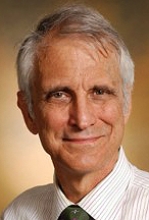BME Lecture Series: John Wikswo, Vanderbilt University

Professor of Biomedical Engineering, Molecular Physiology & Biophysics, and Physics
Abstract: The broad emergence of organs-on-chips over the past six years is the result of major investments by DOD, NIH, EPA and FDA. The growing use of organoids complements this work, particularly in developmental biology, in that both approaches enable a new class of long-term, three-dimensional tissue culture that should also support precision medicine. As these microphysiological systems (MPS) become accepted tools in biology, medicine, pharmacology and toxicology, we will see a commonality of features, including realistic perfusion through a self-assembling vasculature, reporter genes, physiologically realistic media volumes, coupled organs and multiomic analyses. Hence it is crucial that the platforms for supporting, interconnecting and analyzing these tissue constructs advance in parallel with the tissue models. Much of the MPS work to date has utilized gravity- or pressure-driven superfusion of the constructs, and extensive efforts are being expended to the worthy goal of creating high-throughput MPS assays. Instead, our group has been focusing on long-term high-content assays, with tissue and media volumes compatible with untargeted multiomics. Our focus has been on the neurovascular unit, the engineered cardiac tissue construct, a mammary-gland bioreactor and a bone-joint model. We recognize that these assays involve not only the tissue chip, but also the support and measurement platforms. We have been developing a family of microfluidic pumps, valves and controllers that form the basis of perfusion controllers, microclinical analyzers and microformulators that will ultimately support automated operation of complex fluid-handling and analysis paradigms in well plates and tissue chips, including controlled stem-cell differentiation. The key to success of the field, whether high-throughput or high-content MPS, may ultimately depend upon the economics of the assays, their ease of use, their ability to answer important scientific and medical questions and how well they can support in vitro to in vivo extrapolation.
Bio: Wikswo is the Gordon A. Cain University Professor at Vanderbilt University and is the founding director of the Vanderbilt Institute for Integrative Biosystems Research and Education. Trained as a physicist, he received his B.A. degree from the University of Virginia and his Ph.D. from Stanford University. He has been on the Vanderbilt faculty since 1977. His research has included superconducting magnetometry, the measurement and modeling of cardiac, neural and gastric electric and magnetic fields, and non-destructive testing of aging aircraft. His group’s current work on organ-on-chips focuses on the development of intelligent well plates that serve as perfusion controllers, microclinical analyzers and microformulators; developing a blood-brain barrier on a chip; and integrating multiple organs to create a milli-homunculus from coupled organs on chips. As a tenured member of the Departments of Biomedical Engineering, Molecular Physiology & Biophysics, and Physics & Astronomy, he is guiding the development of microfabricated devices, optical instruments and software for studying how living cells interact with each other and their environment and respond to drugs, chemical/biological agents and other toxins, thereby providing insights into systems biology, physiology, medicine and toxicology. He has over 200 publications, is a fellow of seven professional societies and has received 24 patents.
Share
Upcoming Events
-
MSE 298 Seminar: Radiation Resistance and Mechanical Response of Ceramics in Extreme Environments
-
EECS 294 Seminar: Programming Light Diffraction for Information Processing and Computational Imaging
-
MAE 298 SEMINAR: Stretchable Electronics for Soft Biological and Robotic Systems
-
CBE Distinguished Lecture/CBE 298 Seminar: Computational Design of Peptides as Detectors, Sensors and Drugs
-
MSE 298 Seminar: Molecular Modeling in the Age of AI - From Energy Materials to Device Simulations
